SEO Guides, Tips & More!
Learn from Our Experience
Ultimate Guide to SEO for Accountants – Off Page SEO
2020 will be a year of digital marketing. More companies in the industry and public accounting are planning to invest more in their websites, SEO, and digital advertising than ever before. Digital’s value proposition is strong, after all: cost-effective, easily trackable, and the ability to be highly targeted. SEO has the power to more fully optimize digital marketing campaigns and expand the reach of online efforts.
And by now, accounting firm marketers have most of the tools available to know how to get the process started at their firm, thanks to our Ultimate Guide to SEO Part 1 and Part 2. We’ve covered SEO’s benefits to accounting firms, how to measure it, different types of SEO campaigns, how to write content that’s optimized for SEO, including longtail phrases and user intent.
In our final installment, we’ll dive into off-page SEO strategies such as:
- Value of Off-Page SEO
- Backlinking Strategies for Accounting Firms
- Guest Authoring
- The Role of Social Media
- Updating and Using Google My Business
Value of Off-Page SEO
Recall that there are two types of SEO: on-page and off-page. Marketers and web developers can control on-page SEO; that is, keywords, metadata, formatting, page speed, and so on. Off-page SEO is when other websites link back to the firm’s site. This is impossible to control, but off-page SEO can be influenced.
According to Moz.com, off-page SEO ranking factors influence more than half of a website’s total rank. This graph illustrates the different factors contributing to a site’s total SEO rank. Notice how:
- Off-page links to the website, domain-level page rank = 20.94%
- Off-page links to individual pages, PageRank, anchor text, etc = 19.15%
- Social metrics = 7.24%
- Off-page brand mentions = 8.59%
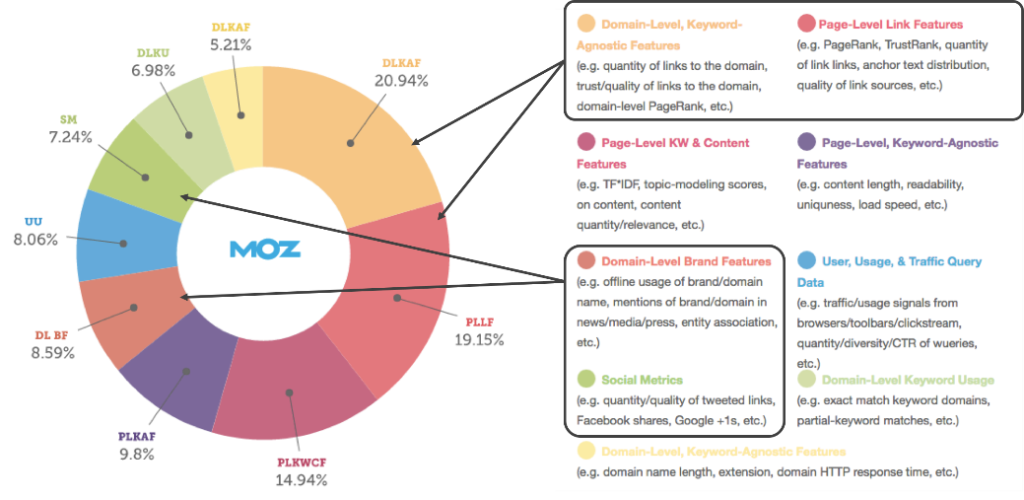
These numbers basically mean that the sites and links pointing back to the firm’s website matter quite a bit. The goal of off-page SEO is to improve the popularity, relevance, trustworthiness, and authority of the firm’s website. It influences the perception of the firm’s website and increases page ranking as a result, when it’s executed well. Here are a few ways to do that.
Backlinking Strategies for Accounting Firms
Backlinking is the majority of off-page SEO. All other factors being equal, two accounting firms will rank differently depending on which one has more high-value backlinks. Backlinks can be done in three ways:
Natural links – an independent third-party site decides to mention the firm and link back to the site. Think in terms of a local community and lifestyle magazine that publishes its own list of Top 10 Regional Accounting Firms.
Manual links – the firm gets involved in which sites link back to it, like influencers. For example, the marketing team asks influencers in complementary industry circles to share the firm’s content with their network.
Self-created links – the firm gets involved in adding links back to its own site on directories, press releases, and so on. This is the weakest of the three link types.
In any case, make sure that wherever a link to the firm appears on the web, that the origin site is trusted and verified. Marketers who want more information on backlinking and link building strategies in general will find this post from April 2019 quite useful. We included resources for four link building guides, six link building strategies, and five sites to help avoid black hat link building.
There are so many different ways to go about backlinking so we’re only going to include a few. The first two are natural extensions of the firm’s online activity.
Online Directories
This starts with making sure the firm’s basic information – name, address, website, and phone number – are correct and accurate. A complete business description should also be included. Other than social media sites, the top free ones are:
- Google My Business (more on this soon)
- Bing
- Yelp
- Super Pages
- Yellow Pages
- Apple Maps
- Better Business Bureau
- Foursquare
- Yahoo! Local
PR Sites
If the firm has a subscription to a PR service that handles its press releases, these sites are natural backlinking hubs. PR Newswire, PRWeb, Newswire, and PR.com are popular.
From here, content partnerships with industry publications and relationships with influencers are always effective backlinking strategies.
Industry Publications
All firms serve certain niche verticals that have their own associations and/or publications. Construction has CFMA, AGC, and MBA, for example. Healthcare has HFMA and MGMA, among others. There are industry and trade groups for most niches, and these groups have newsletters and magazines that provide accounting firms with ample opportunities for content marketing. A content partnership takes time to see results, but it’s a valuable tool in creating high-quality backlinks and business development.
Influencers
Well-respected, high-profile influencers with extensive networks are excellent conduits for directing traffic back to the firm’s website. Before asking them to share the firm’s content, make sure the content itself is valuable to them and their followers.
Nontraditional Sites
Finally, two sites that may not be top of mind to accountants are Quora and Reddit. They are essentially question-and-answer sites, and while the topics vary widely, these sites can be great ways to connect with people who have very specific questions (and to do research for content on future blog posts to see what people are talking about). On Reddit, there are communities, or forums, on just about anything. There is an Accounting community of over 137,000 users, accounting for business, small business growth, retirement planning, entrepreneur, and so on.

Quora is similar, except their forums are called Spaces. It’s known to get higher quality web traffic and lower bounce rates than Reddit, according to the Content Marketing Institute. Both sites can be good options for content marketing because firms can connect directly with users.
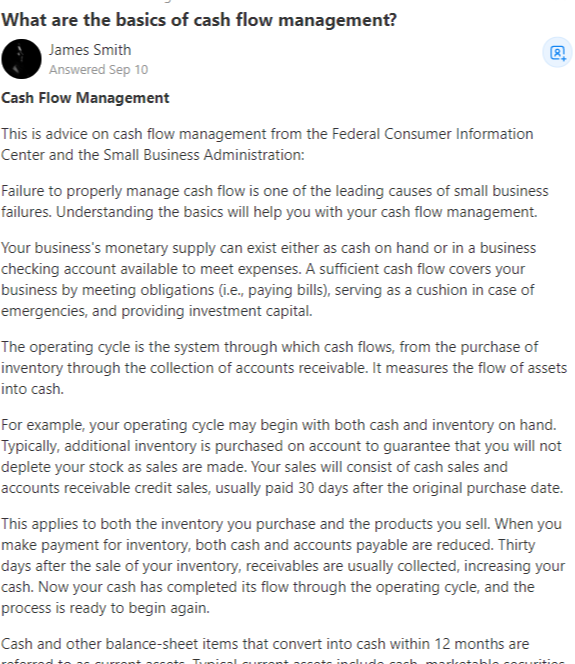
The way they work is users post questions, and community members respond to the thread directly. Accountants can also post comments – excerpts of blog posts with tips on estate planning, for example – and the key is to always include a link to the original post on the firm’s website. To make either of these platforms successful, plan to devote a substantial amount of time in the beginning as the sites are frequently updated.
Guest Authoring
Being a guest author on other blogs provides more exposure and the chance to share expertise with a wider audience. It also means that another company is sharing the firm’s content on their social media channels. When it comes to backlinking, the firm’s domain authority becomes higher over time and the website’s credibility increases. Guest authoring other sites’ blog posts also can shorten the sales cycle, a nice bonus.
To get started, locate complementary service providers like wealth managers, lawyers, commercial real estate developers, and other consultants. Pitch a topic that’s relevant to their followers and submit an outline ahead of time. In the guest post, always include at least one link back to the firm’s page, preferably more. End each post with a call to action.
The Role of Social Media
Social media as a marketing tool has a few really good uses. It builds brand awareness, influences inbound marketing, is a mechanism for recruiting, and the online reviews features of sites like Facebook and Yelp directly influence lead generation efforts. Also consider that when a prospect Googles the firm name, chances are its social media profiles will be among the top search results, even before the firm’s website.
The value of social media in off-page SEO is its link building attributes. Sharing the firm’s content to social media automatically creates backlinks that go out to numerous networks, which increases the firm’s page rank. To get the most out of social media, make sure the firm is posting high-value content regularly, the profiles are up to date, and on-page content is optimized for SEO. In WordPress, the Yoast SEO plug-in makes that part easy.
Individual professionals can have a big impact when it comes to social media, given that people want to interact with other people more than brands. This can work in a couple different ways, depending on the firm and the willingness of the professional to be active on different social media platforms.
One way is for individuals to share the firm’s company page updates. This works even better when the person shares a note about what the article or update is, but simply sharing a post helps get the firm’s name and content out to a wider audience.
The other way is for individuals to write their own posts on LinkedIn. We recommend taking a blog post authored by that person, copying the first half of it in LinkedIn Publisher, shown below, then linking to the website for the rest of the content.

Other ways to utilize social media as part of a backlinking strategy include:
- Using relevant hashtags so more people find the content
- Using calls-to-action like ‘click here’ and ‘learn more’ to help drive traffic to the website
- Incorporating video when possible to mix up the content (video also tends to get better engagement anyway)
Updating and Using Google My Business
Finally, Google My Business might seem like a simple business directory, but it offers much more than that. It’s essential to local SEO. It doesn’t replace the need for an updated website at all, but a completed Business profile will boost Google search rankings and Map listings when people search for accounting firms in a certain area.
To get started, make sure the firm’s hours of operation, phone number, address, website, and other basic details are filled in. Business descriptions are limited to 750 characters, but only the first 250 are guaranteed to show up in all search results. Then, add a service area based on zip codes, cities, or a geographic radius.
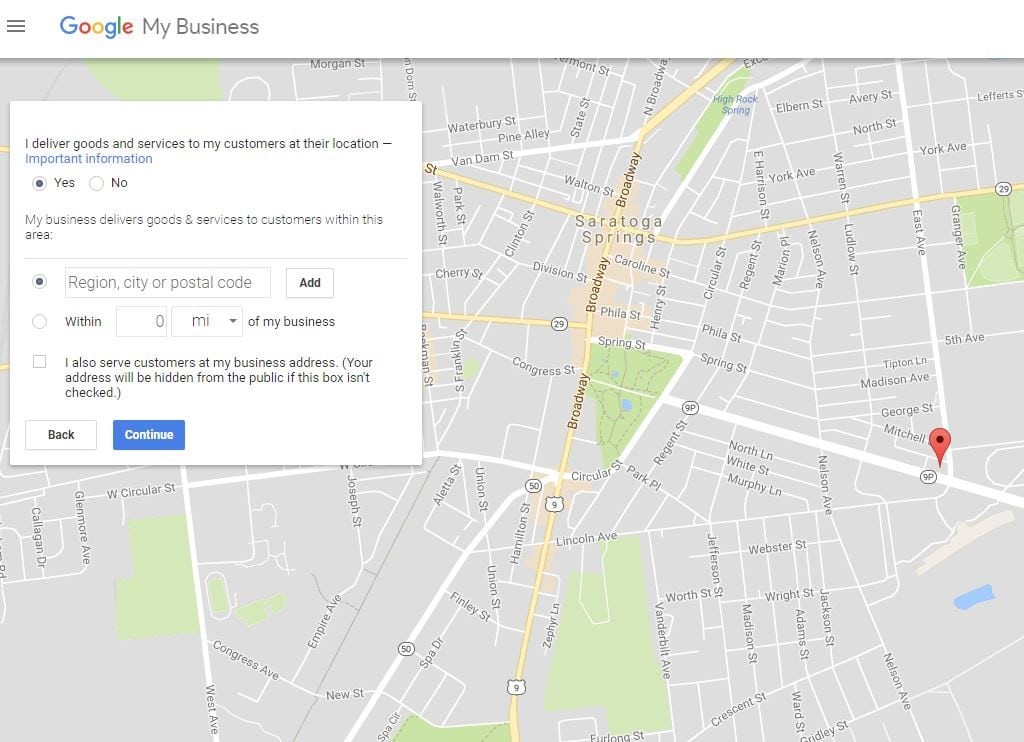
For new profiles, Google will then verify the listing directly with the firm. Once verified, the profile will be published and made public.
Google My Business is also a way to connect directly with clients, easily manage online reviews and Google Ads, and offer targeted promotions. Firms can also add services and a URL where users can make online appointments directly. It’s here – and in the firm’s description – that marketers should pay close attention to which keywords they use.
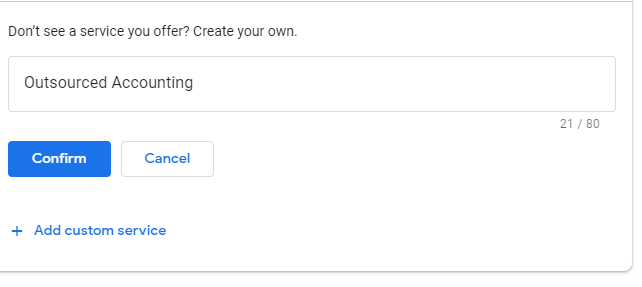
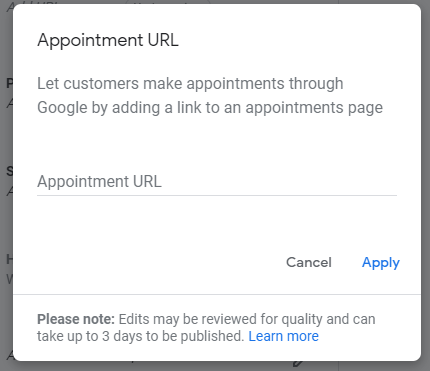
Profile owners can add posts just for Google My Business. Examples of content to include in Posts are upcoming seminars or webinars, tax deadlines, recent blog posts or newsletter articles, or features of the firm’s industry or service expertise. Posts should have an image to get more traffic.

Google My Business analytics will track the number of profile views, website visits, and other actions, like how many people clicked on the phone call or directions links. Combined with other backlinking and off-page SEO tactics, the accounting firm should expect to see a higher page rank, higher domain authority, and more web traffic over time, when all these things are done consistently.
SEO is a big area and the right optimization strategy looks a little different for each firm. We’re here to answer your questions and help get your firm started with SEO.

